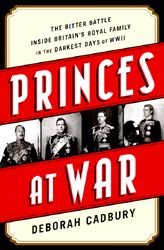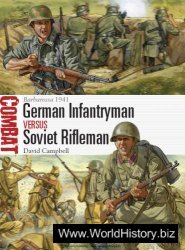On March 4 Lincoln took the presidential oath and delivered his second inaugural address. Photographs taken at about this time show how four years of war had marked him. Somehow he had become both gentle and steel-tough, both haggard and inwardly calm. With victory sure, he spoke for tolerance, mercy, and reconstruction. “Let us judge not,” he said after stating again his

These photos are of Lincoln, when he became president, and shortly before he was assassinated.
Glory (1989) tells the story of the 54th Massachusetts Volunteer Infantry, a black regiment, from its establishment in the fall of 1862 through its attack on Fort Wagner, South Carolina, on July 18,1863.
"Historical accuracy,"director Edward Zwick declared, was "the goal of everyone involved in the production." Filmmakers of historical subjects commonly make such assertions, but Zwick proved that he had attended to the historical record. The peak of Shaw's cap was dyed the exact shade of medium green used by officers of the Massachusetts 54th; and when shoes were distributed to the recruits, there were no "lefts"or "rights": Shoes were to shape themselves to either foot from wear. Few viewers could be expected to take note of such historical details, but Zwick included them nevertheless.
Zwick's evident commitment to history makes his deviations all the more interesting. Consider the opening scenes. The movie begins with a panoramic shot of rolling hills, dot-ted with tents. Fog blankets the valley and softens the morning light. The camera moves closer, focusing on Union soldiers around a campfire. Then the quiet is shattered by explosions: Soldiers hasten to form ranks, trot toward a bat-tlefield, and charge across it, a young officer in the vanguard. (He is Captain Robert Gould Shaw, played by Matthew Broderick).The attackers are decimated. When Shaw turns to rally his troops, he sees that they are fleeing in terror. Then he is hit and loses consciousness.
Shaw is sent home to Boston to convalesce. At a reception, Governor Andrew offers the young officer command of the Massachusetts 54th, a black regiment being raised in
Boston. Shaw hesitates for a moment. Then he confers privately with another officer, who is appalled.
"I knew how much you'd like to be a colonel, but a colored regiment?"
"I'm gonna do it,"Shaw replies.
"You're not serious."
"Yeah."
These scenes contain truths without being entirely truthful. Governor Andrew did offer the commission and Shaw accepted it. But at the time Shaw was in Virginia. Andrew, in Boston, conveyed it through Shaw's father and young Shaw initially refused. Zwick has compressed the story chronologically, squeezing weeks into minutes;and he has rearranged it geographically to enable Andrew and young Shaw to meet. Such modifications are common in "reel his-tory,"and these do not impair historical understanding.
But Glory deviates from the historical record in more significant ways. It suggests, for example, that the Massachusetts 54th was composed mostly of former slaves whose hatred of slavery was based on personal experience. In fact, most of its volunteers were from northern states and had never been slaves.
The fiction that they had been slaves, however, made it possible for Zwick to examine a larger truth. Of the
178,000 blacks who served in the Union army, fewer than one-fifth were from the North; the great majority were former slaves. Nearly 100,000 were recruited from Louisiana, Mississippi, or Tennessee, among the first states occupied by the Union army. Glory thus merges the story of the free blacks of the Massachusetts 54th with that of former slaves who were recruited from the Deep South.


Matthew Broderick as Robert Gould Shaw, and Denzel Washington as the former slave recruit Trip, in the movie Glory.


Robert Gould Shaw, Commander of the Massachusetts 54th, and private Charles Arnum, a free black volunteer from Springfield, Massachusetts.
Zwick exploited the dramatic potential of the latter groups. How did slaves respond when, having just received their freedom, they were placed under the absolute power of white officers?
Glory develops the question chiefly through the character of Trip (Denzel Washington),a former slave who hates all whites, including Shaw. Shaw illuminates the other side of the question. An inveterate abolitionist, he reluctantly decides that former slaves must be whipped (literally) into shape. When Trip sneaks off one night and is captured for desertion, Shaw orders him flogged. When Trip's back is bared, Shaw sees that it is laced with scars from whippings by slave masters. During the flog-ging, Trip fixes Shaw with a hateful stare, a powerful scene that underscores the movie's central irony:To end slavery, Shaw has become Trip's master while Trip has again become a slave.
Whatever its dramatic merits, the scene is ahistorical. In 1861 Congress had outlawed flogging in the military. Disobedient soldiers were tied in a crouched position, or they were suspended by their thumbs, toes just touching the ground.
Physical punishment was, in fact, one of the chief sources of contention between ex-slave soldiers and white officers."I am no slave to be driven," one black recruit informed a brutish commander. When an officer of the 38th Colored Infantry tied a black recruit up by the thumbs, his friends cut him down and forced the officers back with bayonets:"No white son of a bitch can tie a man up here," they declared. The blacks were charged with mutiny and several were executed, an incident that shows that former slaves did not willingly submit to army discipline tainted with racism. Though African Americans constituted only 8 percent of the Union army,80 percent of those executed for mutiny were black. Many white officers, as the movie suggests, did assert that former slaves must be treated as slaves."I no longer wonder why slave drivers were cruel. I am,"one white officer confided in a letter to his brother.
Could such soldiers—black recruits and white officers alike—have been good ones? The movie answers the question by recreating the actual attack on Fort Wagner, the first step in the offensive on Charleston. It shows the blacks of the
Massachusetts 54th marching to the front of the line, and forming up along a narrow beach. On Shaw's command, they charge forward. Unlike the white troops in the opening scene, the blacks follow him to the ramparts; when he falls, they continue onward until they are wiped out.
Were the actual soldiers of the Massachusetts 54th as courageous as those in the movie? Shortly after the battle, Lieutenant Iredell Jones, a Confederate officer, reported, "The negroes fought gallantly, and were headed by as brave a colonel as ever lived." Of the 600 members of the 54th Massachusetts, 40 percent were casualties on that day, an extraordinarily high ratio. But did ex-slaves fight as courageously as the free blacks of the 54th? The answer to this question came not at Fort Wagner, but at other, less publicized battles. A few weeks earlier, for example, several companies of the Louisiana (Colored) Infantry, com-posed of former slaves who had been in the army only for several weeks, fought off a furious Confederate assault at Milliken's Bend near Vicksburg. The Confederate general was astonished when whites in the Union army fled but the blacks held their ground despite sustaining staggering casualties—45 percent—the highest of any single battle in the war.
Thus while Glory is a fictional composite—of free black and ex-slave recruits, and of the assault on Fort Wagner and Milliken's Bend—it conveys a broader truth about black soldiers. Howell Cobb, a Confederate senator from Georgia, declared,"If the black can make a good soldier, our whole system of government is wrong." Glory shows that although white officers and black recruits did not form a harmonious team, they together proved that slavery was doomed.




 World History
World History









